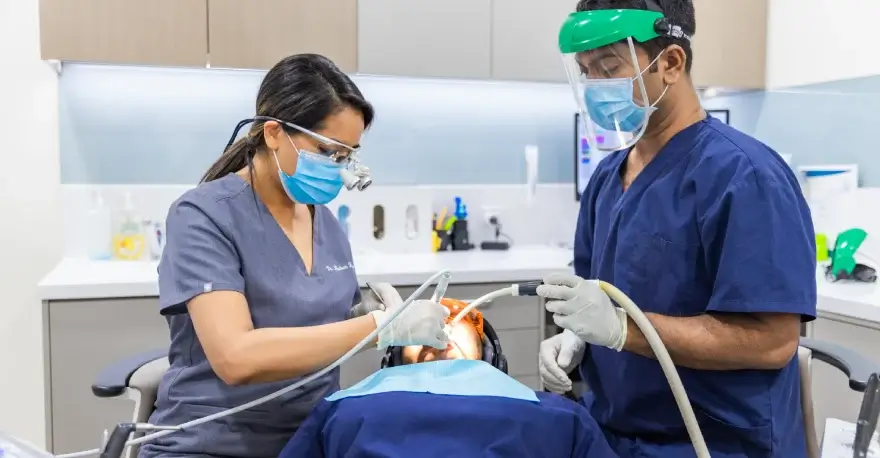Our dentists are highly skilled and experienced in root canal therapy and will provide you with professional treatment at an affordable price, with payment options available.


Have you ever had a toothache and wondered where the pain comes from? Your tooth may appear solid however, the inside of your tooth containing the nerves which is known as the “pulp” may become infected. If the tooth is cracked, knocked, decayed or has a large filling close to the pulp, you may experience pain and toothache.
Below are the most common causes of root canal infection:
Untreated damage can lead to the death of the nerves in the tooth, called pulpal necrosis, classifying it as a non-viable tooth. If the pulp is infected, it may result in an abscess. In order to save the tooth, it is sometimes necessary to perform a Root Canal procedure.

Your root canal treatment will typically take 1-3 visits, however the duration can be influenced by a number of factors, including the number of canals in the tooth, the level of infection and/or damage, and the skill of your dentist. A root canal procedure will be performed by your dentist, with the ultimate goal of saving your tooth. The treatment involves removing the infected tissue, and sealing the tooth to prevent further damage.
A consult is required with your root canal dentist to determine if root canal treatment is appropriate.
Your dentist will isolate the tooth to remove decay and old restorations. They will then remove the pulp and shape the canals with specialised dental tools and chemicals. Your dentist will also take multiple x-rays throughout this step to ensure the full length of the canals has been reached.
The canals will be filled with a biocompatible filling material and the access cavity with a filling material. This filling is essential to keep out bacteria to give your tooth the best chance of recovery.
In the final step your dentist will place a crown as a permanent restoration.
Once the bacteria is removed and any infection is resolved your tooth will heal and remain functional.


While these symptoms can indicate a number of different dental conditions, you should speak to your dentist if you experience any of the below:
Following root canal procedure, your tooth will be weak and brittle. Weakness occurs as a result of previous defective fillings, damage from decay or cracks. Once all of these elements are removed the remaining tooth structure may be weak. Brittleness occur due to the loss of nerve and blood supply. These badly damaged teeth need protection from the forces of chewing.
At Ashton Avenue Dental, our dentists provide protective dental fillings and same-day dental crowns to restore form, function and aesthetics to a root canal treated tooth.